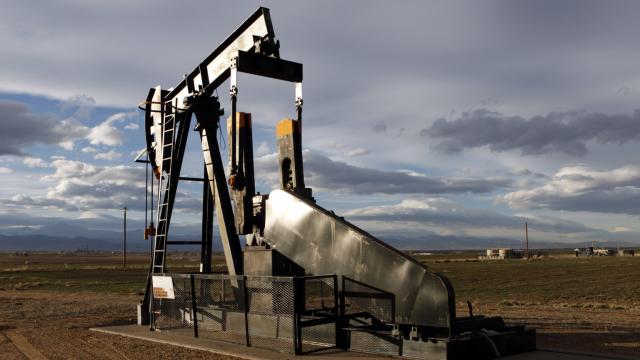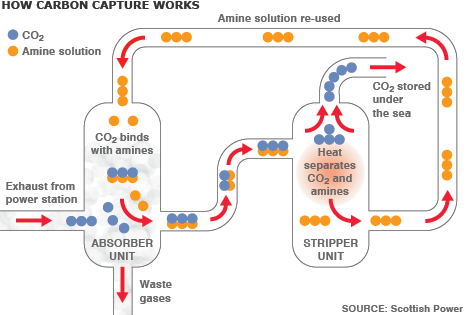State Releases New Fracking Regulations Amid SB 4 Criticism, Controversy
DOGGR also wades into CEQA while environmental community questions wisdom and effects of new State law
California's Division of Oil, Gas & Geothermal Resources (DOGGR) has released its proposed regulations governing hydraulic fracturing pursuant to Senate Bill 4, controversial legislation signed into law this September. DOGGR's November 15 public notice begins its formal rulemaking process and marks the start of a 60-day public comment period for the new rules. DOGGR also filed its Notice of Preparation for a statewide Environmental Impact Report required to be conduc...
CONTINUE READINGRethinking “Adaptation”
I've spent a lot of time and energy talking about the need to adapt to climate change, but I've also become increasingly uneasy about "adaptation" as a way to think about the situation. One of the things I don't like about the term "adaptation" is that it suggests that we actually can, at some expense, restore ourselves to the same position we would have been in without climate change. For any given amount of climate change, we can do things that decrease the resulti...
CONTINUE READINGCalifornia cap and trade survives industry tax challenge
Auctions can proceed in one of the state's signature climate change programs
ARB's winning streak in climate cases continues. A California superior court has rejected a prominent set of industry challenges to the state's cap-and-trade program, upholding a significant element of California's suite of programs to comply with AB 32 and to reduce the state's greenhouse gas emissions back to 1990 levels by 2020. (Opinion here.) The cases were filed by the California Chamber of Commerce and the Pacific Legal Foundation, which charged that the ...
CONTINUE READINGGreen Streets for Berkeley?
Low Impact Development (LID) or green infrastructure can be used to improve water quality in urban environments through the use of swales, bioretention basins, permeable pavement, and other approaches to managing stormwater. However, there can be challenges to actually putting green infrastructure in place. Max Gomberg and I recently published an Op-Ed in the San Francisco Chronicle (subscription required or ping me for a copy), arguing that green infrastructure deser...
CONTINUE READINGThe Rhetoric of Cap and Trade
Different ways of framing the concept of cap and trade help drive the public debate.
Discussions of cap and trade tend to frame it in various ways, which often skews the debate. These different frameworks guide the thoughts of both supporters and critics, sometimes in surprising ways. There are four different ways to talk about cap and trade, and they tend to lead the debate in very different directions. The Economics Frame. Cap and trade began with economists, and economics still plays a large role in discussions by policy wonks. For an econom...
CONTINUE READINGThe Olympics of Climate Change: Warsaw 2013
What to know, where to watch
It’s that time again! The United Nations’ COP19/CMP9 Climate Change Conference kicked off this week in Warsaw, the start of two weeks of international discussion on climate change. The conference hosts the parties to the United Nations Framework Convention on Climate Change and the Kyoto Protocol, as a yearly update and check-in on these treaties, and a general opportunity for the world to talk climate change. It’s kind of like the Olympics, without the emot...
CONTINUE READINGRenewable Energy Beyond 2020 — Lunchtime Conference at UCLA Law next Tuesday
Free event will also launch a new report from UCLA and UC Berkeley law schools on this topic
Please join us on Tuesday, November 19th at UCLA Law for a free lunchtime panel presentation on the future of California's renewable energy policies beyond 2020. California is on pace to meet the goal of securing 33 percent of the state’s electricity from renewable sources like solar and wind by 2020. What energy goals should policy makers begin considering now to help sustain the momentum? How can policy makers ensure that continued renewable deployment helps th...
CONTINUE READINGCapturing Carbon
A recent CRS report provides a wealth of information about carbon capture. You can learn a lot about the various technologies and how close or far they are from possible adoption. But for most of us, the technical details matter less than the answers to some key questions: Is carbon capture technically feasible? Can it be done at scale? At what cost? There's no question that carbon capture is technically feasible. There are a number of well-understood me...
CONTINUE READINGStanding for Coal?
In a previous post I questioned whether anyone would have standing to challenge EPA's new plant regulations for coal plants, considering that coal plants are current uneconomical anyway due to low natural gas prices. I was pleased that Inside EPA wrote a story about my argument, and even more pleased that the story reported on a couple of theories about how to avoid the problem. These theories are interesting, and I hope that industry tries them so we can find out ...
CONTINUE READINGIs Missouri v. Holland in the Court’s crosshairs?
Justices look for limits on Treaty Power in domestic dispute case
The headline environmental cases at the Supreme Court this term are of course about the Clean Air Act, specifically about its application to cross-state pollution (as Dan has explained here) and to greenhouse emissions (as Ann has addressed here and here). But sometimes cases that at first glance seem wholly unrelated to the environment could also have important implications for the future of environmental law. Bond v. United States, argued this week, is one of those...
CONTINUE READING










